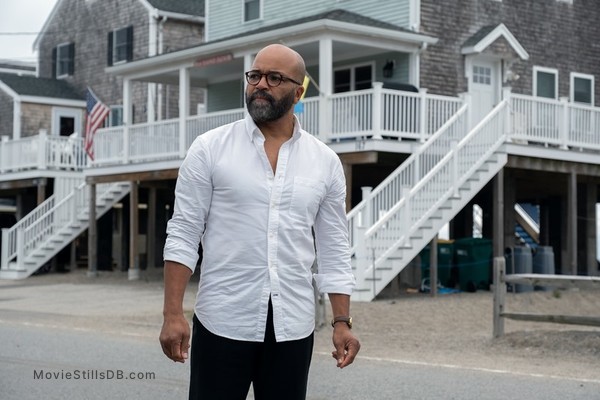
The first thing that comes to mind is Charles Burnett’s film To Sleep With Anger portraying the black community away from racial stereotypes. I can’t remember if there was an interview about it, but it’s so true that when I think back at films from the 90s about the black community, they are riddled with crime, gangs, poverty, and rappers. It’s easy to be reductive, it’s harder to look at the whole picture.
I know there are plenty of other examples of films that portray a better slice of life for the African American experience from the 90s, but I find that I experienced them later in life. These could be like Love and Basketball, Drylongso, and Love Jones. They tell more about the African American experience that’s filled from real human experiences. And they reflect my own experience growing up next to Oakland, California and having black classmates who were just as talented as the other classmates.
In the first act of American Fiction, Monk played by Jeffrey Wright comes home to an all too familiar real family issue with his mom’s debilitating dementia. His sister is the only sibling present for her mom. And when her and Monk have time to talk about the family and his behaviors, she has a heart attack. When Monk’s brother Cliff comes to visit, played by Sterling K. Brown, you see a character who’s had it with his family. Slowly, it’s revealed that the father killed himself at the beach house where they are having the funeral ceremony for Monk’s sister, and I can’t help but feel the tragic backdrop that is this family.

The contrasting elements of this film are the absurdist plot line about Monk having written a novel pointing out racial stereotypes of African Americans in media. It also shows caricatures of white people who work at prestigious academies, publishing houses, and movie studios who cater to an “American” appetite for diverse voices that align with those stereotypes. I’ve heard the arguments that this argument of is less so since the novel the film is based on was released in 2001 are passé. And to some extent, that’s true too. We’ve heard of more diverse voices having more relatable storylines. The decade of films like Boyz n the Hood, Menace II Society, and Friday are replaced with more poignant pieces of the African American experience. But I also see the other side too, that we aren’t that far away from the past, and it those memories still resonate. I had an Uber driver once bring up Jungle Fever when relating to his black son marrying a white woman. Those stories still echo.
Which leaves me back to American Fiction. Meta-narrative aside, the things that stick to me are the writer’s journey in developing characters, dialogue and plot. Side characters getting more screen time to develop different facets like the mother’s caretaker finding a partner. The little things in life that happen to all of us are highlighted here. The living reality makes the absurd more so, and you can’t help but wonder how far does this have to go?
There’s a subplot with Monk’s mother being put in a care facility that breaks my heart. I had to take my dad to one recently, and the experience was all too familiar. It’s heartbreaking watching your parents as functional adults lose that agency, and hoping they find some solice near the end of their life. And that scene where the mother says she never liked that painting was brutal as it reminds me of my dad rejecting house plants in his room.
Ultimately, I don’t feel like we get much resolution with Monk. Even with his confrontation with Issa Rae’s character about his mock book getting so much praise and she found pandering, he didn’t get the answers he wanted. Paired with a disastrous fight with his girlfriend Coraline, it makes you want for the classic Hollywood ending, but stays true to its grounding that sometimes we can be assholes and we have to live with those consequences. Side note: I should revisit The Worst Person in the World, which I think tells that message a lot better.

If you haven’t pieced it together, I really liked this film and would highly recommend it. It’s still playing in theaters, as I’ve published this. But if it’s been months or years after you’re reading this, find it to rent or stream online. Or better yet, support your physical media distribution company and own your movies.